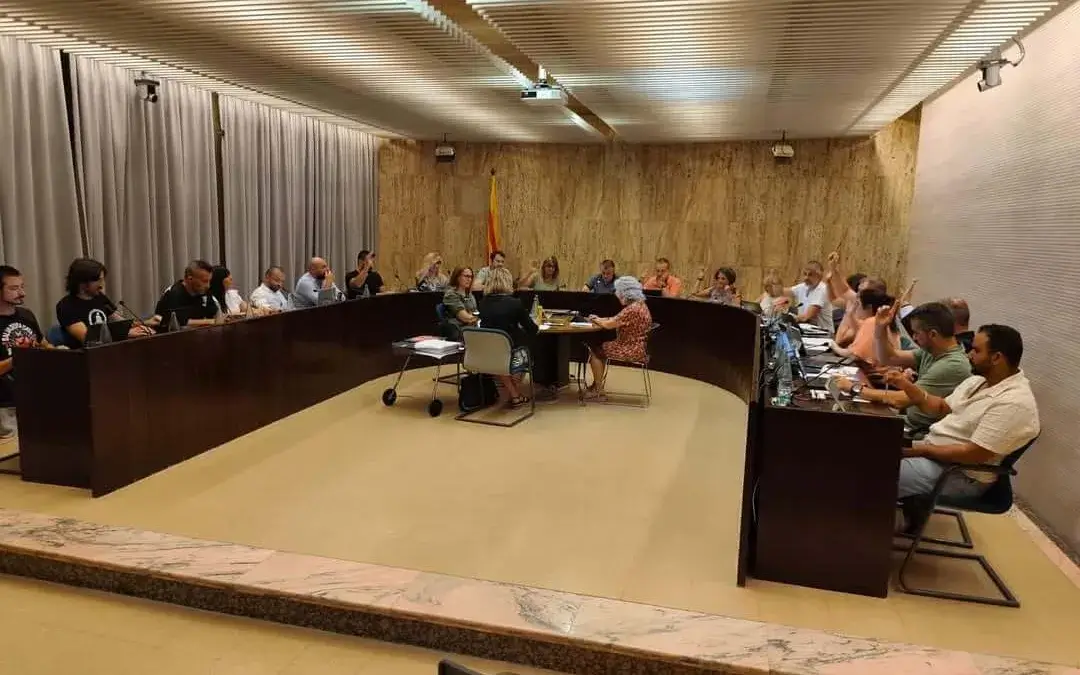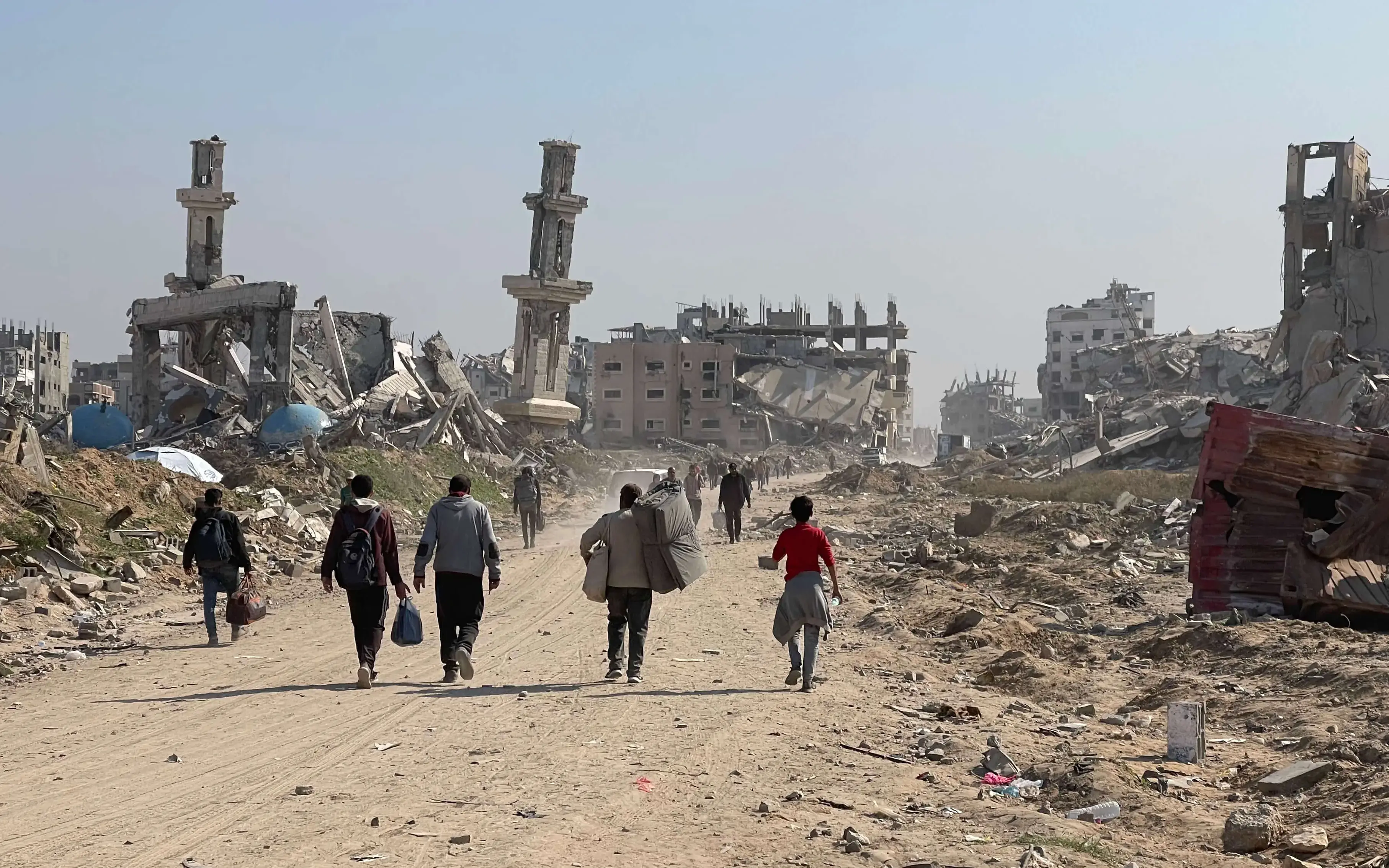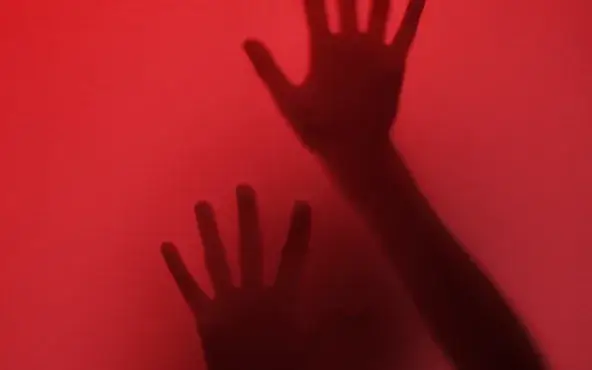Interview
Carme Vinyoles: "The coercion that a woman victim of forced marriage can suffer is brutal"
We speak with the director of Valentes i Acompanyades, who is launching a campaign to encourage municipalities to proactively get involved in the fight against forced marriages.
Forced marriage is a form of gender-based violence that affects around 900 million women around the world, according to UN data. Although it may seem like a distant and often very invisible reality, it also happens here and affects our neighbors.
In response to this situation, the association Valentes i Acompanyades, which has been actively fighting against this scourge since 2014, is calling on local councils to take action against this practice.
That is why it is promoting a motion with three main objectives: to raise awareness and inform the public about this often-hidden reality; to encourage municipalities, given their proximity to citizens, to help detect risk situations through the training of professionals such as local police, municipal technicians, social workers, or councilors; and to establish direct channels of collaboration with city councils to prevent as many cases as possible and to support the girls who decide to break away from what their families are trying to force them to do.
We discuss all this with Carme Vinyoles, the director of the organization.
How did your work against forced marriage begin?
We started the association Valentes i Acompanyades in 2014 as a project to prevent forced marriages. Initially, it was developed in the municipalities of Salt and Girona, but over the years it grew to cover almost the entire territory of Catalonia. We were born out of a need, which still exists today, based on the certainty that this practice is not a distant issue from remote countries, but rather something that happens among us and affects our neighbors, coworkers, classmates…
It’s a reality that is still little known.
Exactly, and it’s a form of gender-based violence that affects women in our surroundings and is still very invisible—more than we might think. In fact, we quickly realized that it was a reality that was happening, through young people who told us about it. And we also realized that it wasn’t just a sporadic practice adopted by very conservative families, but one that was quite widespread.
And you got to work to take action.
From there, we moved forward with the project with the goal of preventing forced marriage and helping girls who were trapped in this issue, raising awareness in society that forced marriage exists here, and addressing the political and public sphere so that measures could be taken to put an end to this scourge.
How many women has Valentes i Acompanyades helped over the years?
In the ten plus years that we've been active, we’ve accompanied more than 400 girls across Catalonia. That said, this number is minimal in relation to the actual incidence of forced marriage. So, it’s a figure that doesn’t reflect the real situation.
It’s very difficult for girls who suffer from this to report it.
Absolutely. In fact, out of the 400 girls we’ve helped, maybe around 2% have reported it. A very small proportion. Most of them have come to Valentes i Acompanyades through other girls who have gone through the same situation, by word of mouth, or through social media, which in recent years has become a very useful tool in this regard. Also, of course, through social workers or high school teachers, for example, who made them aware of the situation they were facing. So, the majority of girls don’t report it—it’s a minimal expression.
So how do you approach it from the organization?
Obviously, we don’t require them to file a report in order to help them. It’s a very complex reality for them, because it often involves reporting their own family, with all that that implies. Especially considering that it’s the family they grew up with and where, generally, there hasn’t been any kind of violence until that moment.
That makes detection very difficult.
That’s partly why we’re launching a campaign against forced marriage among municipalities. We believe it’s crucial that we all come together to try to prevent this practice and so that these girls don’t have to suffer this interruption of their life plans and this gender-based violence that violates their rights. So we work so that they have the resources, the strength, and the courage to say no to this practice. They need support, guidance, and resources to move forward.
That’s what we propose as an organization—not so much that they go and file a report. Although, on the other hand, if they want to do it, we certainly won’t tell them not to, because it’s also a useful tool. However, given how specific and particular this kind of violence is, we don’t require any report in order to provide assistance.
How do you provide this assistance?
Through different resources to give them this support, like shelter housing, which—although we don’t have enough—is often a necessary resource because they very often have to leave the family environment, which is the one really pressuring them, along with the community environment, to go through with the marriage. Many times, the family believes this practice should happen and they think, with the same conviction with which we believe it’s wrong, that it’s a tradition that must be followed because it holds them together as a group and as an identity.
The pressure they have to endure is enormous.
Totally, the coercion that a woman victim of forced marriage can suffer is brutal. That’s why, when they come to the association, they must feel that it’s a safe space. We often have to ask for advice from the Mossos d’Esquadra to handle the care, because each case is unique. They need top-level emotional and psychological care because they are very shaken and have gone through a very traumatic experience. They often feel guilty because their families make them feel like they’re not worthy members of the community, that they’re not good Africans or Muslims. They bear all kinds of emotional blackmail elements that they must overcome to move forward.
You also focus a lot on the issue of education.
We always try to work in this area because we think it’s essential that they can continue their studies or start them, if they’ve recently arrived from a country where they didn’t have the right to schooling. Education—like Catalan classes or getting a high school diploma—will be the door to their financial independence and the basis of their freedom. Also job guidance, if needed, or providing a series of relational habits and programs to help them move forward.
The motions you are promoting also emphasize awareness-raising.
We believe that awareness and training are essential. And after more than ten years of operating, we believe this issue is still not sufficiently visible or well known, both in Catalonia and the rest of the State. In fact, we also receive requests from other parts of the country, especially from the Valencian Community and Andalusia.
What is the focus of this campaign?
Based on the fact that the reality of forced marriage is not visible enough, and beyond general protocols and measures that may be implemented by the Catalan Government, we thought that one effective way to address the day-to-day reality of this situation is through municipalities and city councils. Because these towns, villages, and cities are where these women live, where they can study and work. In short, it's the closest level of government.
Addressing this issue together is one of the goals.
We are convinced that collaboration between administrations and organizations is the way to move forward. And since this practice is often not well known, we thought it would be a good idea to present these motions to city councils. The idea is to create a ripple effect in terms of political positioning against forced marriages. And, on the other hand, to establish communication channels and joint working mechanisms to truly be effective when these situations arise.
Which municipalities have joined the campaign?
We started with a pilot project with Girona City Council in November 2024, during the International Day for the Elimination of Violence Against Women. From there, municipalities like La Bisbal d’Empordà, Olot, Banyoles, Arbúcies, Llagostera, Quart, and Salt have joined. We also have agreements with Sant Feliu de Guíxols, Caldes de Malavella, Cassà de la Selva, and Sant Adrià del Besòs, where it will be implemented in September.
What does this motion involve?
Part of it focuses on a declaration of principles, in the sense of explaining what forced marriages are, along with a whole series of proposals. One of the things we ask for, for example, through the Government, is that the UN declare an international day against forced marriages, just like there is one against female genital mutilation, for instance. We are talking about more than 900 million women in the world who have been married against their will, many of them underage.
You also emphasize training.
We ask for training sessions to be organized, for example. We have a four-hour training plan and make it available to all municipalities, both at the technical and political levels. We believe that councilors, mayors if possible, and technicians from areas like social work, education, justice, and equality should participate… The goal is for municipal staff to receive this training to learn how to detect situations and cases of forced marriages, but also so they can be a gateway and an important information channel on this issue.
Valentes i Acompanyades also proposes actions for schools.
Yes, it's worth saying that the organization has four workers and myself, as a volunteer, and between helping the girls and everything else, we don’t have much time. Still, we are currently running a workshop on the prevention of gender-based violence at a high school in Salt for secondary school students. Among these forms of violence, we include forced marriage as one. The idea we propose in the motion is to multiply these workshops because schools and high schools are very important and suitable spaces for detection and for addressing the issue together.
Are you hoping more city councils will join the campaign?
Yes, in fact the idea is to officially and publicly present the campaign on November 25, because we haven’t done so yet. Until now, everything has happened through word of mouth. Except for the Girona City Council, which was the first, we haven’t contacted any other municipalities to present the campaign—they were the ones who came to us, because they saw it on social media or elsewhere. That’s why we want to present it publicly with all the city councils that have already joined.
In response to this situation, the association Valentes i Acompanyades, which has been actively fighting against this scourge since 2014, is calling on local councils to take action against this practice.
That is why it is promoting a motion with three main objectives: to raise awareness and inform the public about this often-hidden reality; to encourage municipalities, given their proximity to citizens, to help detect risk situations through the training of professionals such as local police, municipal technicians, social workers, or councilors; and to establish direct channels of collaboration with city councils to prevent as many cases as possible and to support the girls who decide to break away from what their families are trying to force them to do.
We discuss all this with Carme Vinyoles, the director of the organization.
How did your work against forced marriage begin?
We started the association Valentes i Acompanyades in 2014 as a project to prevent forced marriages. Initially, it was developed in the municipalities of Salt and Girona, but over the years it grew to cover almost the entire territory of Catalonia. We were born out of a need, which still exists today, based on the certainty that this practice is not a distant issue from remote countries, but rather something that happens among us and affects our neighbors, coworkers, classmates…
It’s a reality that is still little known.
Exactly, and it’s a form of gender-based violence that affects women in our surroundings and is still very invisible—more than we might think. In fact, we quickly realized that it was a reality that was happening, through young people who told us about it. And we also realized that it wasn’t just a sporadic practice adopted by very conservative families, but one that was quite widespread.
And you got to work to take action.
From there, we moved forward with the project with the goal of preventing forced marriage and helping girls who were trapped in this issue, raising awareness in society that forced marriage exists here, and addressing the political and public sphere so that measures could be taken to put an end to this scourge.
How many women has Valentes i Acompanyades helped over the years?
In the ten plus years that we've been active, we’ve accompanied more than 400 girls across Catalonia. That said, this number is minimal in relation to the actual incidence of forced marriage. So, it’s a figure that doesn’t reflect the real situation.
It’s very difficult for girls who suffer from this to report it.
Absolutely. In fact, out of the 400 girls we’ve helped, maybe around 2% have reported it. A very small proportion. Most of them have come to Valentes i Acompanyades through other girls who have gone through the same situation, by word of mouth, or through social media, which in recent years has become a very useful tool in this regard. Also, of course, through social workers or high school teachers, for example, who made them aware of the situation they were facing. So, the majority of girls don’t report it—it’s a minimal expression.
So how do you approach it from the organization?
Obviously, we don’t require them to file a report in order to help them. It’s a very complex reality for them, because it often involves reporting their own family, with all that that implies. Especially considering that it’s the family they grew up with and where, generally, there hasn’t been any kind of violence until that moment.
That makes detection very difficult.
That’s partly why we’re launching a campaign against forced marriage among municipalities. We believe it’s crucial that we all come together to try to prevent this practice and so that these girls don’t have to suffer this interruption of their life plans and this gender-based violence that violates their rights. So we work so that they have the resources, the strength, and the courage to say no to this practice. They need support, guidance, and resources to move forward.
That’s what we propose as an organization—not so much that they go and file a report. Although, on the other hand, if they want to do it, we certainly won’t tell them not to, because it’s also a useful tool. However, given how specific and particular this kind of violence is, we don’t require any report in order to provide assistance.
How do you provide this assistance?
Through different resources to give them this support, like shelter housing, which—although we don’t have enough—is often a necessary resource because they very often have to leave the family environment, which is the one really pressuring them, along with the community environment, to go through with the marriage. Many times, the family believes this practice should happen and they think, with the same conviction with which we believe it’s wrong, that it’s a tradition that must be followed because it holds them together as a group and as an identity.
The pressure they have to endure is enormous.
Totally, the coercion that a woman victim of forced marriage can suffer is brutal. That’s why, when they come to the association, they must feel that it’s a safe space. We often have to ask for advice from the Mossos d’Esquadra to handle the care, because each case is unique. They need top-level emotional and psychological care because they are very shaken and have gone through a very traumatic experience. They often feel guilty because their families make them feel like they’re not worthy members of the community, that they’re not good Africans or Muslims. They bear all kinds of emotional blackmail elements that they must overcome to move forward.
You also focus a lot on the issue of education.
We always try to work in this area because we think it’s essential that they can continue their studies or start them, if they’ve recently arrived from a country where they didn’t have the right to schooling. Education—like Catalan classes or getting a high school diploma—will be the door to their financial independence and the basis of their freedom. Also job guidance, if needed, or providing a series of relational habits and programs to help them move forward.
The motions you are promoting also emphasize awareness-raising.
We believe that awareness and training are essential. And after more than ten years of operating, we believe this issue is still not sufficiently visible or well known, both in Catalonia and the rest of the State. In fact, we also receive requests from other parts of the country, especially from the Valencian Community and Andalusia.
What is the focus of this campaign?
Based on the fact that the reality of forced marriage is not visible enough, and beyond general protocols and measures that may be implemented by the Catalan Government, we thought that one effective way to address the day-to-day reality of this situation is through municipalities and city councils. Because these towns, villages, and cities are where these women live, where they can study and work. In short, it's the closest level of government.
Addressing this issue together is one of the goals.
We are convinced that collaboration between administrations and organizations is the way to move forward. And since this practice is often not well known, we thought it would be a good idea to present these motions to city councils. The idea is to create a ripple effect in terms of political positioning against forced marriages. And, on the other hand, to establish communication channels and joint working mechanisms to truly be effective when these situations arise.
Which municipalities have joined the campaign?
We started with a pilot project with Girona City Council in November 2024, during the International Day for the Elimination of Violence Against Women. From there, municipalities like La Bisbal d’Empordà, Olot, Banyoles, Arbúcies, Llagostera, Quart, and Salt have joined. We also have agreements with Sant Feliu de Guíxols, Caldes de Malavella, Cassà de la Selva, and Sant Adrià del Besòs, where it will be implemented in September.
What does this motion involve?
Part of it focuses on a declaration of principles, in the sense of explaining what forced marriages are, along with a whole series of proposals. One of the things we ask for, for example, through the Government, is that the UN declare an international day against forced marriages, just like there is one against female genital mutilation, for instance. We are talking about more than 900 million women in the world who have been married against their will, many of them underage.
You also emphasize training.
We ask for training sessions to be organized, for example. We have a four-hour training plan and make it available to all municipalities, both at the technical and political levels. We believe that councilors, mayors if possible, and technicians from areas like social work, education, justice, and equality should participate… The goal is for municipal staff to receive this training to learn how to detect situations and cases of forced marriages, but also so they can be a gateway and an important information channel on this issue.
Valentes i Acompanyades also proposes actions for schools.
Yes, it's worth saying that the organization has four workers and myself, as a volunteer, and between helping the girls and everything else, we don’t have much time. Still, we are currently running a workshop on the prevention of gender-based violence at a high school in Salt for secondary school students. Among these forms of violence, we include forced marriage as one. The idea we propose in the motion is to multiply these workshops because schools and high schools are very important and suitable spaces for detection and for addressing the issue together.
Are you hoping more city councils will join the campaign?
Yes, in fact the idea is to officially and publicly present the campaign on November 25, because we haven’t done so yet. Until now, everything has happened through word of mouth. Except for the Girona City Council, which was the first, we haven’t contacted any other municipalities to present the campaign—they were the ones who came to us, because they saw it on social media or elsewhere. That’s why we want to present it publicly with all the city councils that have already joined.






Add new comment